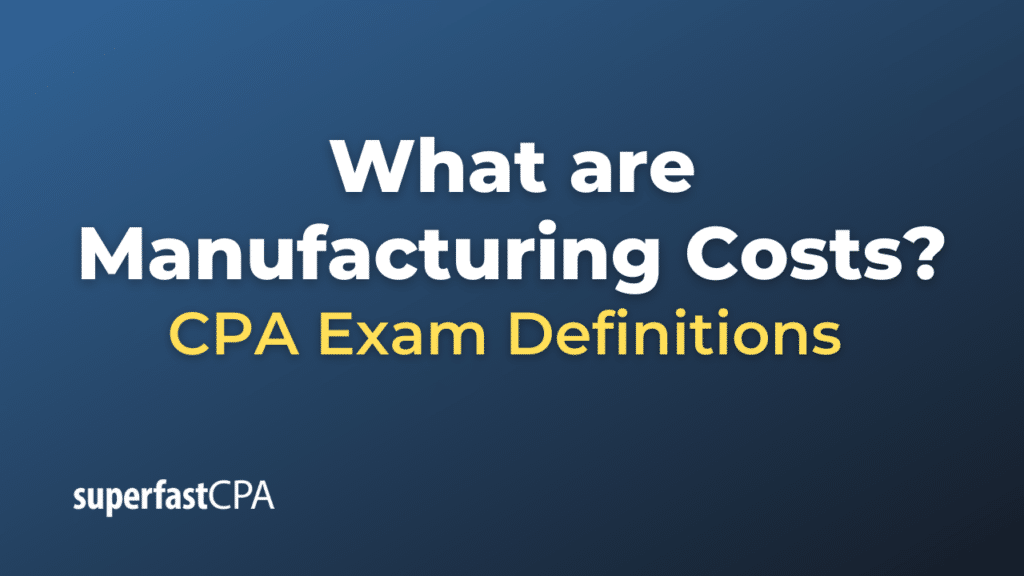Manufacturing Costs
Manufacturing costs are the costs incurred in the production process. These costs are related to the physical creation of products and include direct materials, direct labor, and manufacturing overhead.
- Direct Materials: These are the raw materials that are directly involved in the production of a good and can be traced to specific products. For example, in a car manufacturing process, the steel used for the body of the car or the engine parts would be considered direct materials.
- Direct Labor: This refers to the wages paid to the workers who are directly involved in converting raw materials into finished goods. These are the workers who operate machinery, assemble products, and inspect finished goods. Using the car manufacturing example, the wages of the workers on the assembly line who put the car together would be considered direct labor.
- Manufacturing Overhead: Also known as factory overhead or indirect manufacturing costs, these costs cannot be directly linked to the production of specific goods but are necessary for the overall operation of the production plant. Examples include rent or depreciation on the factory building, utilities, maintenance costs, and the salaries of factory supervisors or quality control staff.
Understanding these costs is crucial for manufacturers for purposes such as setting selling prices, controlling expenditures, budgeting for future operations, and financial reporting.
Example of Manufacturing Costs
Let’s consider an example of a bakery, “The Sweet Dough”, to illustrate manufacturing costs.
- Direct Materials: These are the raw ingredients that The Sweet Dough uses in their recipes – flour, sugar, eggs, butter, and so on. Let’s say that for one batch of cookies, the cost of these ingredients totals $20.
- Direct Labor: This includes the wages paid to the bakers who mix the dough, bake the cookies, and package them for sale. If a baker’s hourly wage is $15 and it takes two hours to make a batch of cookies, then the direct labor cost for a batch of cookies would be $30.
- Manufacturing Overhead: Overhead costs might include the depreciation of baking ovens and mixers, the cost of electricity to run the bakery, cleaning supplies for the bakery, and the salary of a bakery supervisor. Let’s say that these costs total $10 per batch of cookies when divided over the number of batches produced in a period.
Adding these costs together, the total manufacturing cost for a batch of cookies at The Sweet Dough is $20 (direct materials) + $30 (direct labor) + $10 (manufacturing overhead) = $60. This cost will be crucial information for the bakery when setting the selling price for their cookies, planning for future expenses, and measuring their profitability.













